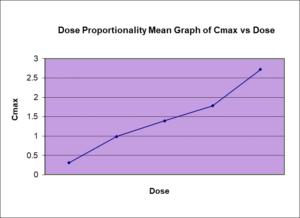How Decentralized Trials are Changing the Clinical Research Landscape

Clinical trials play a crucial role in the development of new drugs and treatments, but traditional human clinical trials have limitations that can impact the validity and generalizability of the results. Decentralized Clinical Trials (DCTs) offer a solution to these limitations by leveraging technology to bring clinical trials closer to patients, enabling more people to participate in research and improving the overall quality of the data collected.
What are Decentralized Clinical Trials (DCTs)?
Decentralized clinical trials are a type of clinical trial that uses technology to break down barriers to participation and collect data from a larger and more diverse population, they are known as remote or virtual clinical trials. Unlike traditional first in human clinical trials, which are often conducted in centralized locations, such as academic medical centers, decentralized clinical trials use digital tools to bring the trial to patients, regardless of their location. This enables patients to participate in clinical trials from the comfort of their own homes, without having to travel to a trial site. Decentralized clinical trials have gained popularity in recent years as a way to conduct clinical research with fewer geographical and logistical barriers.
Key Components of Decentralized Clinical Trials:
Decentralized clinical trials (DCTs) are becoming increasingly popular in the pharmaceutical industry. These trials are designed to allow for greater patient participation, reduce costs, and increase the speed of drug development. There are several key components that make up a successful decentralized clinical trial.
- Mobile Health (mHealth) tools: mHealth tools, such as smartphones and wearable devices, are used to collect data from patients and monitor their health status.
- Electronic Patient-Reported Outcomes (ePRO): ePRO is a method for collecting patient-reported data, such as symptoms, quality of life, and treatment satisfaction, using electronic devices.
- Remote monitoring: Remote monitoring allows for the continuous collection of data from patients, even when they are not physically present at a trial site.
Benefits of DCTs:
Decentralized clinical trials (DCTs) have the potential to transform the clinical trial process, offering a more patient-centric approach to research. By leveraging remote monitoring technologies, DCTs provide a flexible and convenient alternative to traditional trials, which often require patients to travel long distances to participate. In this way, DCTs offer several benefits that can improve patient engagement and retention, diversify patient populations, and streamline data collection.
- Increased patient engagement and participation: By eliminating the need for patients to travel to a trial site, DCTs increase the pool of eligible participants, particularly among patients who live far away from research sites or have limited mobility, and making it easier for people from diverse backgrounds to participate in clinical research.
- Improved patient retention: Patients who participate in DCTs may be more likely to stick with the study, as they do not have to worry about travel time or costs.
- More diverse patient populations: Traditional trials may exclude patients who live in remote areas or cannot travel to a physical site. DCTs can include a more diverse patient population, which can lead to more representative results.
- Improved data quality and accuracy and more efficient data collection: By collecting data from patients in real-time, DCTs provide a more accurate picture of patients’ health status and treatment response. Digital technologies, such as electronic informed consent, ePRO (electronic patient-reported outcomes), and telemedicine, can streamline data collection and reduce the burden on both patients and researchers.
- Faster study completion: DCTs can often be completed more quickly than traditional trials, as they do not face as many logistical hurdles.
The benefits of DCTs cannot be overstated. By leveraging digital technologies and providing a more patient-centric approach to clinical research, DCTs can increase patient engagement, improve data quality, and accelerate the development of life-changing treatments. As the pharmaceutical industry continues to evolve, DCTs are likely to play an increasingly important role in advancing medical research and improving patient outcomes.
What are the Challenges of Decentralized Clinical Trials?
Decentralized clinical trials (DCTs) offer many advantages over traditional clinical trials, such as increased patient participation and retention, and faster study completion. However, DCTs also present several challenges that need to be addressed to ensure the safety and efficacy of the research. These challenges range from technical issues to regulatory hurdles and data security concerns.
- Reliance on digital technology: this is susceptible to technical concerns such as inadequate internet connectivity, software malfunctions, or hardware failures.
- Regulatory issues: Performing a DCT may necessitate additional regulatory scrutiny to ensure patient safety. The regulatory environment for DCTs is continually growing, and ensuring that DCTs conform with existing norms and standards can be problematic.
- Data security: In clinical research, protecting patient data is crucial. DCTs may raise the danger of data breaches, especially if patients use their own devices or access the internet.
- Access to certain populations: While DCTs can improve access for some patient populations, they may not be appropriate for all clinical investigations or all patients. Patients with little internet literacy or those who require in-person appointments, for example, may be excluded.
While DCTs offer many benefits to clinical research, they also present significant challenges that need to be carefully considered and addressed. Technical challenges, regulatory issues, data security concerns, and limited access to certain populations are just a few of the obstacles that researchers must navigate to conduct successful DCTs. However, by taking a patient-centric approach and leveraging the latest digital technologies, researchers can overcome these challenges and continue to drive innovation in medical research.
The Future of Decentralized Clinical Trials
DCTs have been used in real-world trials in oncology, neurology, and cardiology in recent years. These trials have demonstrated that DCTs can successfully collect high-quality data from patients even when they are not physically present at a trial site. DCTs also have the potential to transform clinical research by providing benefits such as higher patient participation, improved patient retention, and more efficient data gathering.
Yet, they are not without difficulties. Technical constraints, data security concerns, and regulatory compliance are all aspects to consider with DCTs. As digital technology grows, it will be intriguing to explore how DCTs might be further tuned to improve patient outcomes and advance scientific understanding.
Regardless of these obstacles, DCTs have the potential to transform clinical research and improve patient outcomes. DCTs are positioned to play an increasingly more prominent role in furthering scientific understanding as digital technologies continue to improve.
On May 3, 2023, the FDA updated its draft guidance that provides recommendations for sponsors, investigators and other stakeholders regarding the implementation of DCTs to advance medical product development and research. This draft guidance builds on agency recommendations issued in 2020, which provided clarity for investigators to facilitate trial decentralization in response to the COVID-19 public health emergency and associated disruptions such as quarantines, site closures and travel limitations.
Why Choose BioPharma Services for Your Clinical Trials Needs?
BioPharma Services are an excellent choice for drug development sponsors who want to conduct decentralized clinical trials (DCTs) as part of their drug development process. DCTs present a more patient-centric approach to clinical research, and BioPharma Services have the technology, tools, and expertise needed to conduct a successful DCT, such as our new EDC platform. This convenience increases patient engagement and retention while streamlining data collection, improving data quality, and accuracy, and providing faster study completion.
Our EDC platform is designed to provide BioPharma Services with increased and superior capabilities for collecting Phase 1 data more quickly and with higher data quality. BioPharma’s usage of this platform for Phase 1 activity is industry-leading. The EDC platform will cut clinical trial durations, increase data access for sponsors, and allow clients to decrease drug development timetables to bring therapies to market faster. The EDC platform will enter the system validation stage with real clinic data in Toronto, Ontario, and St Louis, Missouri, to fulfill Current Good Clinical Practice (cGCP) requirements.
BioPharma Services can navigate the challenges of conducting DCTs by ensuring regulatory compliance, addressing technical issues, protecting data security, and considering access limitations. BioPharma services is a clinical trial service company that provides a comprehensive solution for drug development sponsors looking to conduct DCTs, with the potential to transform the clinical trial process and drive innovation in medical research.
Written By: Juan He
BioPharma Services, Inc., a Think Research Corporation and clinical trial services company, is a full-service Contract Clinical Research Organization (CRO) based in Toronto, Canada, specializing in Phase 1 clinical trials 1/2a and Bioequivalence clinical trials for international pharmaceutical companies worldwide. BioPharma has clinical facilities both in the USA and Canada with access to healthy volunteers and special populations.



